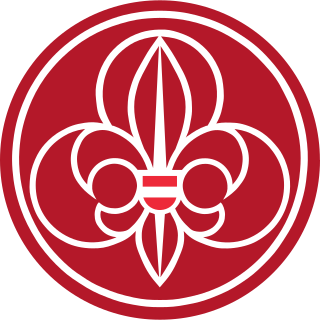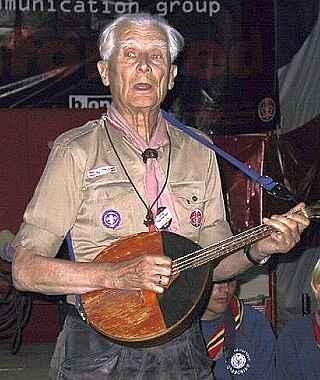Pictures
- Ludwigstein today
- Matthäus Merian's 1655 engraving in Topographia Hassiae
Ludwigstein Castle (German : Burg Ludwigstein) is a 15th-century castle overlooking the river Werra and surrounded by woodland. It stands southwest of the town of Witzenhausen in North Hesse. Founded in 1415 the castle's buildings today were built in the 16th and 20th centuries. It was allowed to go to ruin in the late 19th century.
After the First World War, the Wandervogel and German Youth Movement joined together to save the castle. In 1920 they founded the Jugendburg Ludwigstein Association to buy the structure, renovate it, and erect a memorial to the fifty thousand Wandervogel who had been killed from 1914 to 1918. During the Nazi period, however, the castle became first a training center for the Hitler Youth, then a destination for city children evacuated to avoid air raids during the Second World War. After the war it served briefly as a refugee camp. Suppressed in 1941, the Jugendburg Ludwigstein Association was re-founded in 1945, and took renewed possession of the castle in 1946.
The castle's youth education centre (Jugendbildungsstätte) offers both daily programs and weekend seminars, ranging from ecological topics to music and political education. Also on site are the Archives of the German Youth Movement with their own library and collections of personal papers.
The castle is today the main center of the Bündische Jugend and many German Scouting associations.
The castle also serves as a hostel with up to 180 beds and different meeting rooms.
51°19′19″N9°54′32″E / 51.322°N 9.909°E

Jaroslav Foglar was a Czechoslovak writer who wrote many novels about youths and their adventures in nature and dark city streets. His signature series is Rychlé šípy, which was adapted into comics by Jan Fischer.

Wandervogel is the name adopted by a popular movement of German youth groups from 1896 to 1933, who protested against industrialization by going to hike in the country and commune with nature in the woods. Drawing influence from medieval wandering scholars, their ethos was to revive old Teutonic values, with a strong emphasis on German nationalism. According to historians, a major contribution of the Wandervögel was the revival of folk songs in wider German society.
The German Youth Movement is a collective term for a cultural and educational movement that started in 1896. It consists of numerous associations of young people that focus on outdoor activities. The movement included German Scouting and the Wandervogel. By 1938, 8 million children had joined associations that identified with the movement.

Pfadfinder und Pfadfinderinnen Österreichs is the largest Scouting and Guiding organization in Austria and the only one approved by World Association of Girl Guides and Girl Scouts (WAGGGS) and the World Organization of the Scout Movement (WOSM). The association claims more than 300 troops with more than 85,000 Scouts nationwide. WOSM and WAGGGS give quite smaller membership values for the PPÖ: 27,274 members in WOSM and 10,508 members in WAGGGS.

Outdoor education is organized learning that takes place in the outdoors, such as during school camping trips. Outdoor education programs sometimes involve residential or journey wilderness-based experiences which engage participants in a variety of adventurous challenges and outdoor activities such as hiking, climbing, canoeing, ropes courses and group games. Outdoor education draws upon the philosophy, theory, and practices of experiential education and environmental education.

Magyar Cserkészszövetség, the primary national Scouting organization of Hungary, was founded in 1912, and became a member of the World Organization of the Scout Movement in 1922 and again after the rebirth of Scouting in the country in 1990. The coeducational Magyar Cserkészszövetség had 12,937 members in 2021.

The Scout movement in Germany consists of about 150 different associations and federations with about 260,000 Scouts and Guides.

Queen's Gate House, still commonly known by its previous name of Baden-Powell House, is a conference centre in South Kensington, London. It was built as a tribute to Lord Baden-Powell, the founder of Scouting, and has served as the headquarters for The Scout Association, as a hostel providing modern and affordable lodging for Scouts, Guides, their families and the general public staying in London and as a conference and event venue.
Altenberg is an Ortsteil (area) in the municipality of Odenthal in the Rheinisch-Bergischer Kreis of the State of North Rhine-Westphalia, Germany, and was formerly the seat of the Counts of Berg. Over the course of time, they created around their Residence a small dominion, which later came to be called the Bergisches Land.

Eberhard Koebel also Eberhard Köbel, called tusk, i.e., "the German" in the language of the Sámi people he traveled among, was a German youth leader, writer, and publisher.

The Sturmtrupp-Pfadfinder was a Scout association in Germany active from 1926 to 1934. The association never had more than 500 members. It was the first Scout association in Germany to admit boys and girls. It was interdenominational and politically neutral.

The Deutsche Jungenschaft vom 1.11.1929 refers to a youth league founded by Eberhard Koebel, also known by his hiking name "tusk", which is also known as the German Young Comrades of 1.11.1929 and German Autonomous Young Comrades of 1.11.1929, primarily recognized by the abbreviation dj.1.11. Koebel rejected the prevalent principle of the "life community" in the German youth movement and established his league as a purely boys' league. The Young Comrades in this tradition view themselves as the third wave of the German youth movement after the Wandervogel and the German youth movement. However, many historians now categorize them as part of the German youth movement.

Hans Blüher was a German writer and philosopher. He attained prominence as an early member and "first historian" of the Wandervogel movement. He was aided by his taboo breaking rebellion against schools and the Church. He was received with some genuine interest but sometimes perceived as scandalous.

Hashomer Hatzair is a Labor Zionist, secular Jewish youth movement founded in 1913 in the Kingdom of Galicia and Lodomeria, Austria-Hungary. It was also the name of the Hashomer Hatzair Workers Party, the group's political party in the Yishuv in Mandatory Palestine.

The Deutscher Pfadfinderbund (DPB) (literal translation German Scouting Union) was the first German Scouting association, and the forerunner of the Deutscher Pfadfinderbund (1945). It existed from 1911 until 1933, when it was disbanded by the National Socialists.

Alexej "Axi" Stachowitsch was an Austrian-Russian author, pedagogue, songwriter, technician, one of the most important figures of post-war Scouting and Wandervogel in Germany and Austria, and founder and first principal of the Werkschulheim Felbertal. Stachowitsch was a program director and journalist at the 7th World Scout Jamboree in Bad Ischl, director of the de:Nerother Wandervogel, co-founder of the independent Balduinstein educational institution and founder of the Jungenbundes Phoenix. Meanwhile, it has become known that the castle Balduinstein has been the site of many acts of sexual violence against male minors since its founding and for three decades.

A Jugendburg, sometimes referred to in English as a youth castle, is a medieval castle in German-speaking countries that was converted during the 20th century into a public community centre or educational facility for young people. The sponsors of the original youth castles came mainly from the Wandervogel and Pfadfinder movement, or were at least linked to the youth movement.

The Neuerburg is a castle and fortress in the western Eifel mountains in the Enzbach valley above the town of Neuerburg in the county of Eifelkreis Bitburg-Prüm in the German state of Rhineland-Palatinate. After being restored from 1926 onwards, it has been used as a Jugendburg.